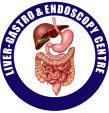FAQ's
If you are over the age of 45, you should visit a gastroenterologist to have a screening colonoscopy. Other than this very important screening, you might choose to see a gastroenterologist if you are suffering with gastrointestinal symptoms such as cramping, pain, discomfort or sudden changes in bowel movements.
You should see a gastroenterologist for acid reflux when it is recurring, chronic or severe. Your primary care provider may be able to better determine whether it is recommended that you visit a gastroenterologist based on the severity and frequency of your symptoms.
Gastroenterologist diagnose and treat mild to severe symptoms of the digestive system, including the stomach, liver, kidneys and colon. Because no two individuals are the same, treatments can range from dietary changes and the introduction of probiotics to colonoscopies and minimally invasive surgery.
Screenings and tests performed by gastroenterologists include colonoscopies, EGD/upper GI endoscopy, endoscopic ultrasounds, liver biopsy, sigmoidoscopies, video capsule endoscopies, endoscopic retrograde cholangiopancreatography (ERCP) and cholangioscopy.
Unless instructed otherwise, such as when undergoing a diagnostic test such as a colonoscopy, you are free to eat as you would normally prior to your gastroenterology appointment.
You may need a referral to see a gastroenterologist. Always check with your insurance provider prior to making an appointment. We recommend seeing your primary care provider prior to seeing a gastroenterologist, as some conditions or symptoms can be treated by your primary care provider and they can best determine how to provide you with the care you need.
The most common signs and symptoms of gastrointestinal disorders include stomach pain, significant heartburn or reflux, weight loss or gain, changes in bowels or blood in stool.
Yes, gastroenterologists perform surgeries when necessary in order to treat some digestive disorders.
Gastroenterologists can treat a variety of diseases related to the digestive system, including abdominal pain, acid reflux/GERD, Barrett’s esophagus, celiac disease, colitis, colonoscopy, Crohn’s disease, gallstones, inflammatory bowel disease, irritable bowel syndrome (IBS), liver disease, pancreatic disease and ulcerative colitis.
Gastroenterologists perform a number of diagnostic tests and medical treatments, including minimally invasive surgeries, colonoscopies, endoscopies and biopsies.
